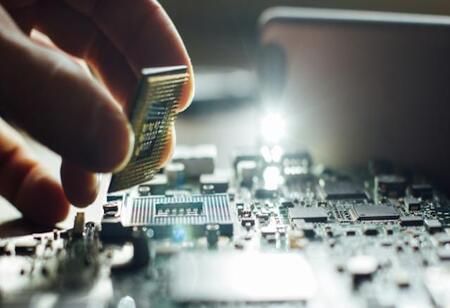
Companies Investing in Manufacturing Plants in the US would be Exempt from Trump's Tariffs


South Korea's leading chip manufacturers might avoid the full impact of US President Donald Trump's suggested 100 percent tariffs on imported semiconductors, as US Commerce Secretary Howard Lutnick explained that firms investing in US production facilities would be exempt.
The President stated that if you agree to construct in America during his administration, and if you register it with the Commerce Department, and if your auditor supervises your construction throughout, he will permit you to import your chips tariff-free while you are building. "However, you must be verified and monitored while constructing in America."
With this clarification, Samsung and SK hynix seem to be in a strong position. Samsung currently runs a semiconductor foundry in Austin, Texas, and is building a $ 17 billion manufacturing facility in Taylor, Texas, expected to launch in 2026. SK hynix has committed to investing $3.87 billion in a state-of-the-art chip packaging facility in the US, with large-scale production anticipated to begin in 2028.
Also Read: Leadership Movements Heralding the Next Phase of Innovation and Growth
Trump's declaration to impose 100 percent tariffs on all imported chips unless produced in America has left Korean companies unclear about the specifics and possible repercussions. Nonetheless, he did not clarify an important point about whether the tariff exemptions would be limited only to chips made in US facilities or if they would also include chips manufactured by the same company in other nations. Lutnick's comments have alleviated worries in Seoul.
According to the current data, analysts increasingly believe that Samsung Electronics and SK hynix will probably avoid the full 100 percent tariff.
Lutnick emphasized that the objective is to produce semiconductor manufacturing domestically, maintaining that crucial technologies remain within US territory. He projected that the initiative might produce as much as $ 1 trillion in investments related to semiconductors within the country.
Also Read: Virat Kohli: A Wrogn Way to Lead Fashion Forward
The Commerce Department continues to carry out a Section 232 investigation under the Trade Expansion Act to evaluate the national security impacts of chip imports. More information on the range and implementation of the tariffs is anticipated after the review concludes.